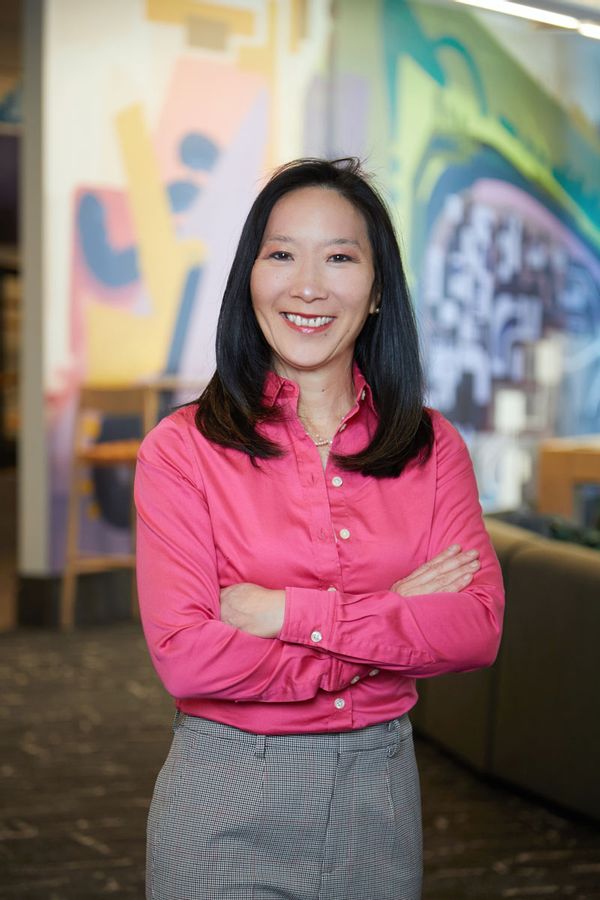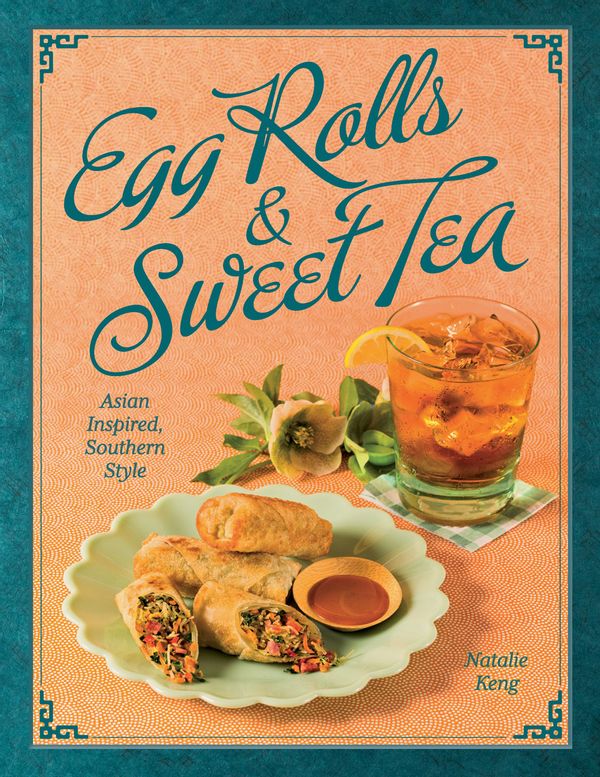“Egg Rolls and Sweet Tea”: How food can serve as a catalyst for diversity
The title of Natalie Keng’s new cookbook, “Egg Rolls and Sweet Tea: Asia Inspired, Southern Style” is a nod to how her parents’ immigration from Taiwan to Georgia set the stage for her culinary upbringing. “Not only are they two of my favorite foods,” she said. “In many ways, they reflect who I am.”
Keng enjoyed a distinctly southern childhood — spent “suckling nectar out of honeysuckles, going to country fairs and fishing off the dock of Lake Altoona” — that was flavored with dishes from her parents’ home country, sparking a lifelong interest in global cuisine. As a kid, she worked in several of her parents’ retail stores at the local mall, including one that sold (you guessed it) egg rolls and sweet tea.
“This oddball pairing went ‘viral’ and folks lined up for what at first had seemed more like cultural confusion than culinary fusion,” Keng said.
“If you stop and think about the foods we enjoy as Americans, it’s easy to see the kaleidoscope of intersections and overlaps that makes us the envy of the world,” she continued. “Right in my hometown of Atlanta, Georgia, I can enjoy dishes that span the globe while embracing my love of the great American South.”
 Natalie Keng (Photo by Chris Lawery)
Natalie Keng (Photo by Chris Lawery)
However, illuminating unique points of intersection in singular ways isn’t just a narrative thread through Keng’s book (though look to her her “Signature Purple ‘Snushi’ Rolls,” which contain pork rinds, Cheetos and avocado, as a prime example of that). It was a key element of her work in the corporate world where she utilized food as a way to encourage real conversations about corporate culture— something that can perhaps serve as a template for others who want to have more real conversations around both the boardroom and dining table.
Before starting her own business and becoming an author, Keng was a strategic multicultural marketing executive and diversity-inclusion advisor at a Fortune 100 company. She says that she discovered “the power of food and culture” while working in the financial services sector of this corporation, where she was charged with “promoting gender equity in a male-dominated industry.”
“At first, I found it hard to get anyone to engage in these kinds of discussions in the boardroom,” she said. “But as soon as I started inviting colleagues to potlucks, insights about how diversifying a sales team should be just as important as diversifying an investment portfolio flowed right out into the social conversation.”
This led to an idea: What if instead of relying on the same stale corporate bonding activities to inspire new conversations, food became the talking point? Keng got people out of the office and started hosting dumpling-making events, tours of farmers markets and restaurant visits. This offered attendees a chance to find unexpected points of commonality.
 Egg Rolls & Sweet Tea cover (Photo by Deborah Whitlaw Llewellyn/Gibbs Smith)
Egg Rolls & Sweet Tea cover (Photo by Deborah Whitlaw Llewellyn/Gibbs Smith)
That is one of the reasons why, in the introduction to “Egg Rolls and Sweet Tea,” Keng poses the question: “Can food be the catalyst for accepting diversity?” In Keng’s mind, the answer is an unequivocal yes, given that she thinks of it as “arguably the world’s best icebreaker.”
Want more great food writing and recipes? Subscribe to Salon Food’s newsletter, The Bite.
Sometimes, all it takes is a single ingredient to find common ground. For instance, rice.
“Rice has played such a historically significant agricultural and economic role across the world, especially in Asia and in the American South,” Keng said. “[It] can be simple and amazingly complex across the rice varieties, nutrients, growing and cooking methods.”
 Dad’s Sweet Tea (Photo by Deborah Whitlaw Llewellyn/Gibbs Smith)
Dad’s Sweet Tea (Photo by Deborah Whitlaw Llewellyn/Gibbs Smith)
From her book, she points to the Rainbow Black Rice Salad — which she calls “a potluck favorite for its amazing colors and texture variety” — as well as the Base Camp White Rice with Quinoa (with a pat of butter and a fried egg), which is “comforting, simple and satisfying.”
“This cookbook is an amalgamation of my childhood growing up in the Deep South and my experiences as I came to discover my passion for exploring the parallels and intersections of race, class and gender through the prism of Asian and Southern family and food traditions,” she continued. As Keng puts it, she comes from “a lineage of ceiling breakers.”
And while the book is deeply personal to Keng’s lived experience — and is packed with family photos and delightful anecdotes about both her work and personal life — it contains a universal message.
“Every dish tells a story, whether it’s barbecue or banh mi. When we learn to love the food, we are more open to the people,” she said. “When we are more open to people, we have a chance to find common interests — whether same age kids or even if it’s a debate about the definition of a Dumpling or the best style BBQ — it opens possibilities — for friendship, relationship and trust, curiosity at some level. When we have connection, everything flows from there.”
Read more
about this topic

